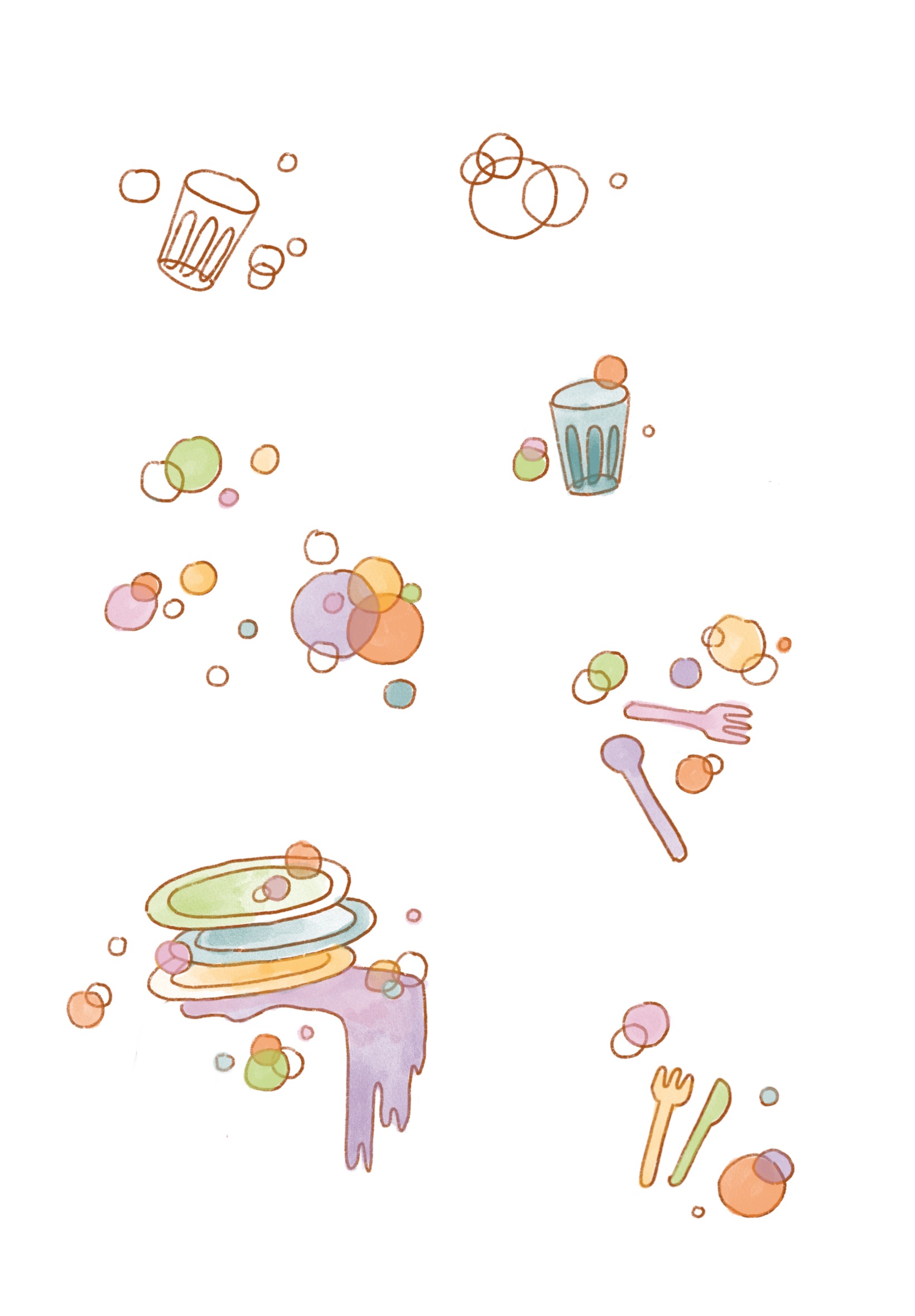One of the most amazing things to watch is someone in their element when you yourself are not. In that moment, you inhabit the role of the viewer of someone who is so comfortable in what they do that they belittle you with their competence, not intentionally, not a glance or thought thrown in your direction at all.
As part of a short stay at a Canadian summer camp, I was assigned to clean the dining hall after a dinner. This was something I had done countless times working in the U.S. There were motions to cleaning a camp dining hall that my body had memorized, that I would do without thinking: arms stretch in instinct to grab stacked plates, feet move before mind, movements are cataloged and repeated for each of a hundred-fifty plates, forks, bowls. At the last sink of three, I no longer had to count the seconds before lifting each dish from its turquoise sanitized water, a minute’s circadian rhythm at work in my hands.
But here…they had a dishwasher. I stood in the dining hall still new to me and watched as others flew into motion. They revealed steps I hadn’t conceived could exist: different tools, even. Out of nowhere emerged plastic trays like milk crates on which you were meant to arrange bowls, that were then brought to the even-more-unfamiliar kitchen and placed on the dishwasher’s conveyor belt: the Hobart.
I asked for a task, but the person I approached was a new counselor himself, an apathetic Brit flown in to help manage the camp’s staff shortage. He wiped pesto and tomato sauce from forks.
“Why are you here?”
I told him.
“They just told you to help?”
I said yeah.
“So screw them. Just leave if you want.”
I stayed. I imitated the actions of others, most campers half my age, and watched as my work was undone. Five bowls on a tray is too many; three fit on this one, two fit on that one, this big bowl is the only one on its tray; you can’t stack them, see how they go into the Hobart? Hobart, Hobart, Hobart… dishwasher-turned-proper noun, deified, mythological. At first glance, it appeared to take up a corner of the kitchen; at second, when switches were flicked to on, water was set to course, and its presence consumed the whole room.
Another counselor stood at the dishwasher in his ratty Nike slides, as if Neptune himself rising from the soapy waters of the flooded kitchen floor. He slung trays into the sightline of the monstrous Hobart, devourer of dishes, consumer of cutlery, and blasted each with more water from a hose suspended octopus-like from the ceiling.
As soon as I saw him towering over the stacks of trays and conveyor belt like an Olympian, I knew I had become an observer. My view of this kitchen was clinical, ethnographic even, and I had no place here as a participant. There was something shameful about this, about watching this performance of moving parts I had not rehearsed, knowing it would continue to be performed after I left the next day. I didn’t have to be competent as a temporary observer, but is there not joy lost in the distance between me and this well-oiled machine of dishwashing competency?
If we don’t acknowledge it, that distance is comfortable. Too comfortable. We trust that other people can fly our planes better, make our bridges safer, and deliver our mail more efficiently than we could ever accomplish, so we don’t think about those other people—unless you are, of course, a pilot, a mail carrier, or majoring in CEE. Detaching ourselves from the world lets us live on our own inhibiting islands where we don’t see the hands taking our plates off the dining hall conveyor belts and counters or the people past the glass partitions cooking our food.
Sure, it’s uncomfortable to recognize that the rest of the world is better than us at…most things, actually, but in that discomfort we can find an opportunity, too, to witness the infinite number of great feats accomplished every day by the people around us. If I listen to the students in my hallway struggling through their p-sets in the common room, using a whole palette of unfamiliar terminology to paint this impressive and obviously-informed art piece of logic and numbers, then I can appreciate their work even more than they can. Can’t they see how they must be doing something right to be able to talk like this? Can’t they see how they shine?
It makes life more interesting to consider all the labor that keeps it going, and more beautiful. We can only hope someone might stop to consider our own work and efforts, but it’s a loss if we leave all the wondering to other people. Unlock this hidden, anthropological joy: being rendered an observer of excellence, a speck staring back at the world.

Leave a Reply